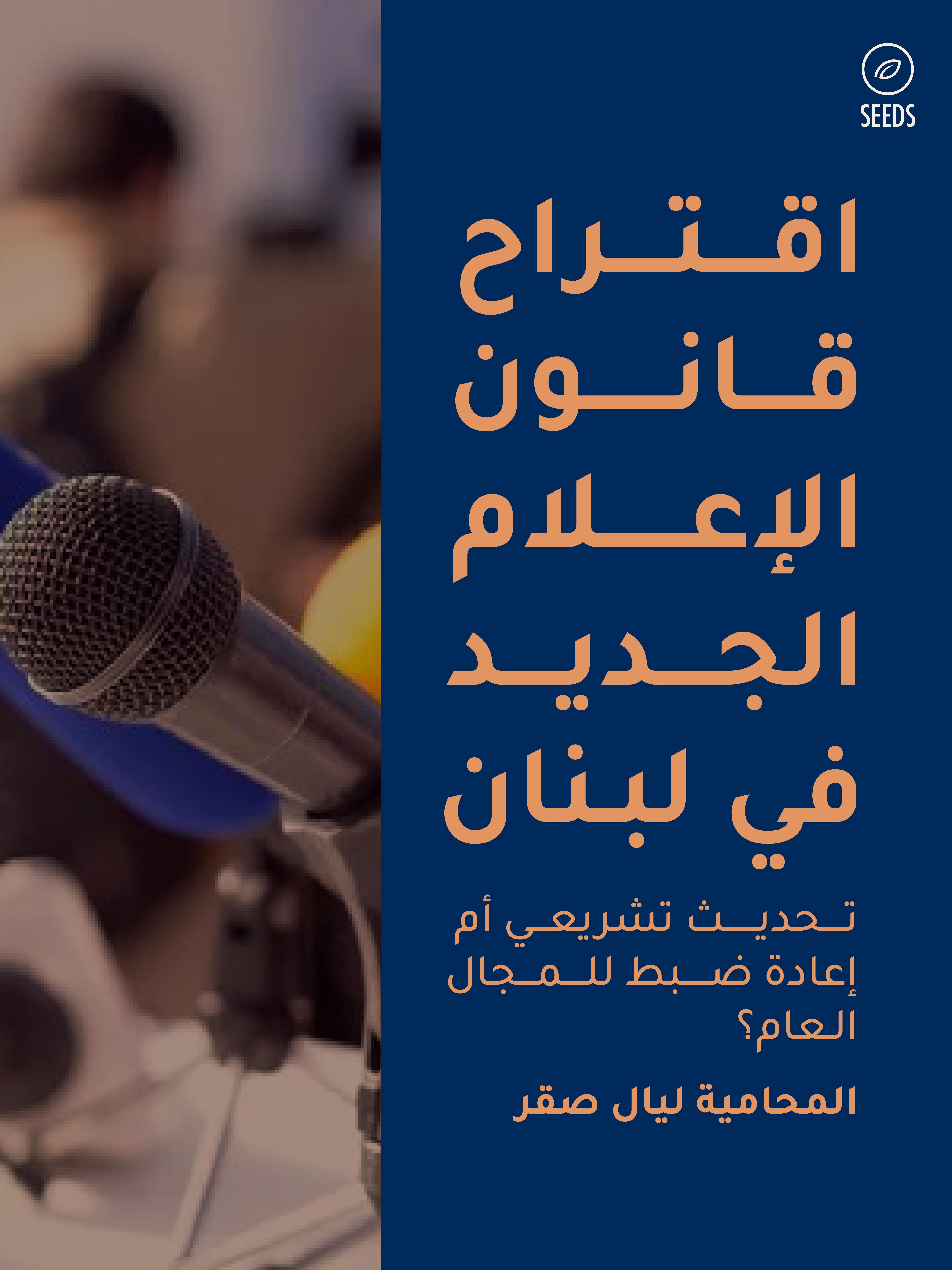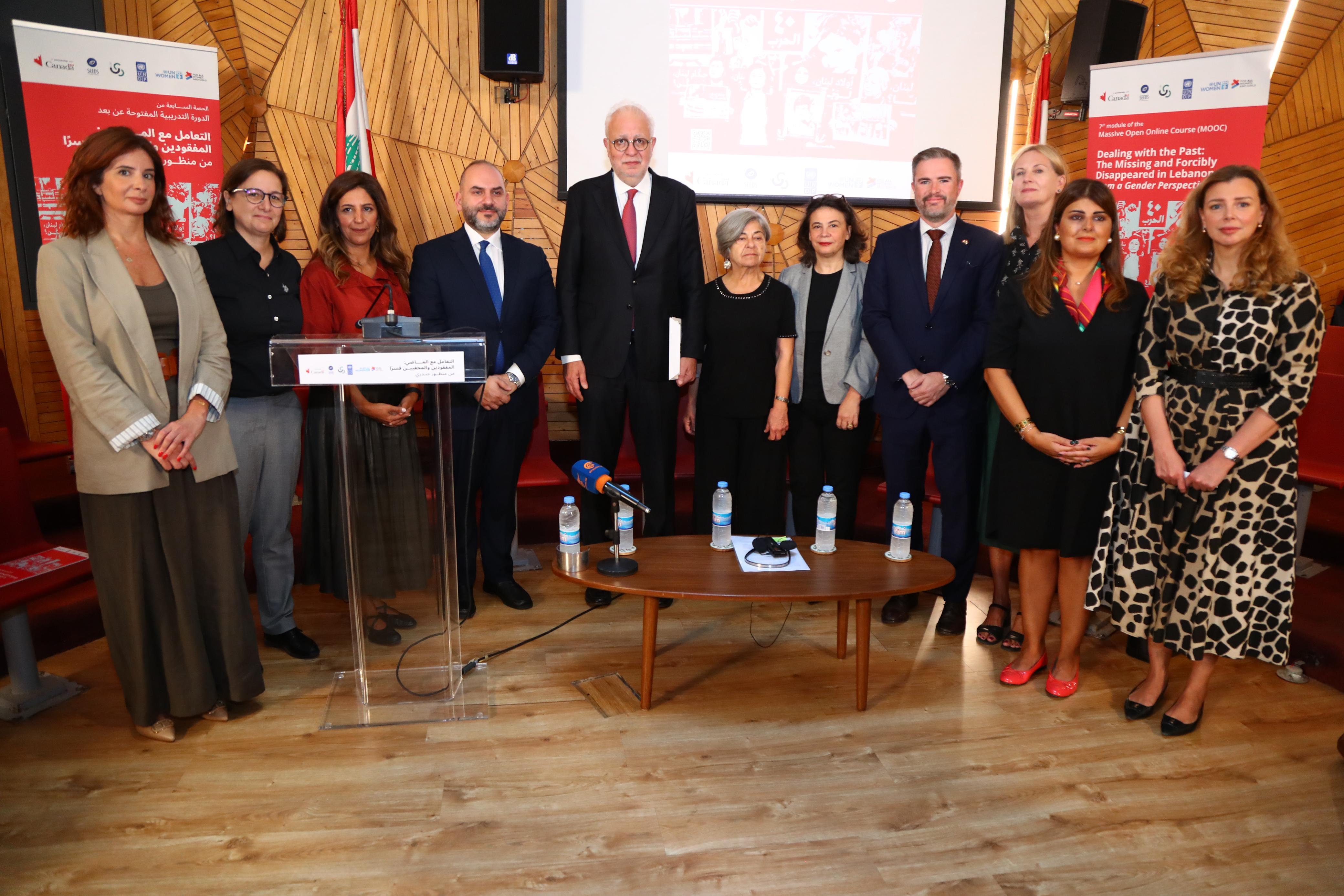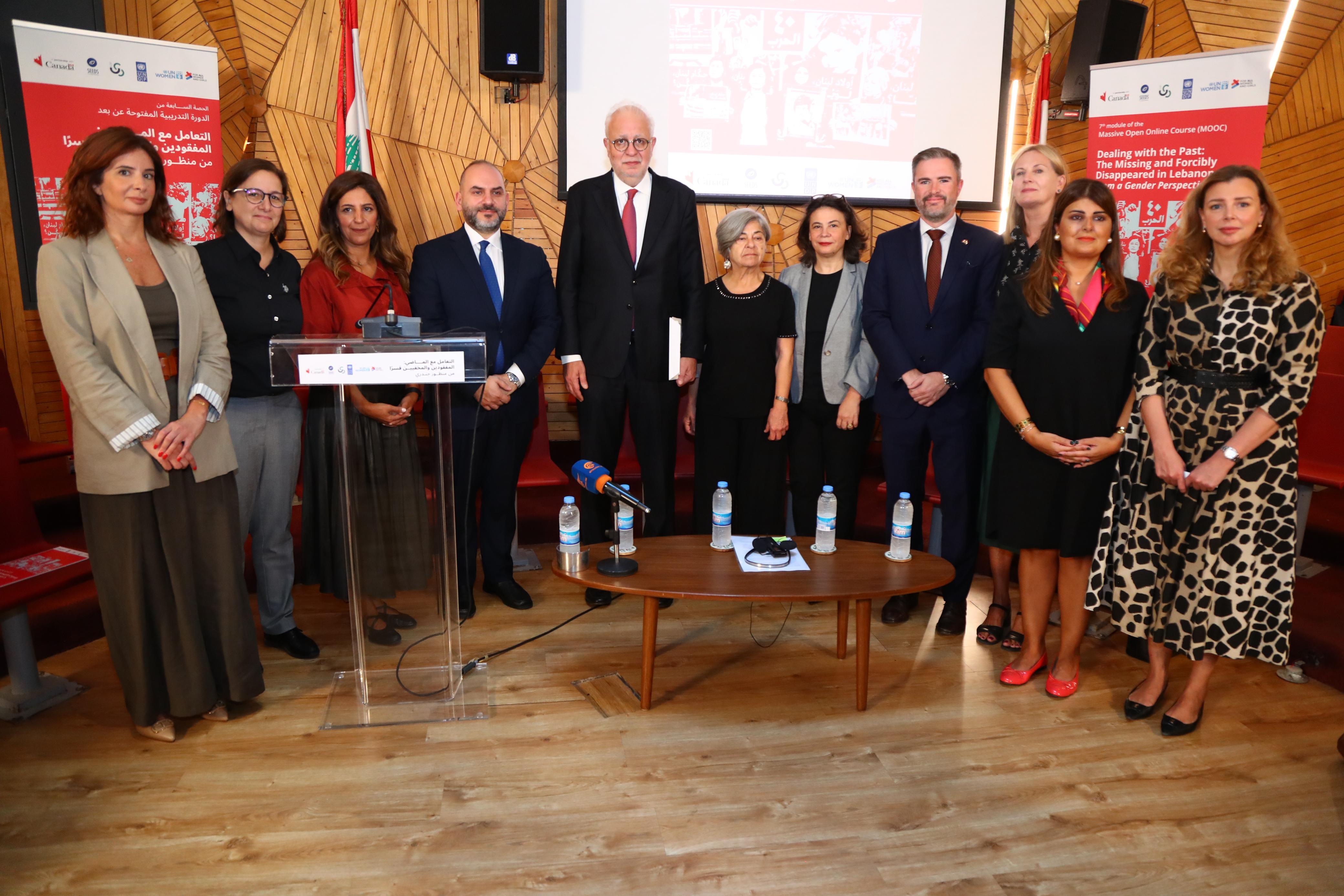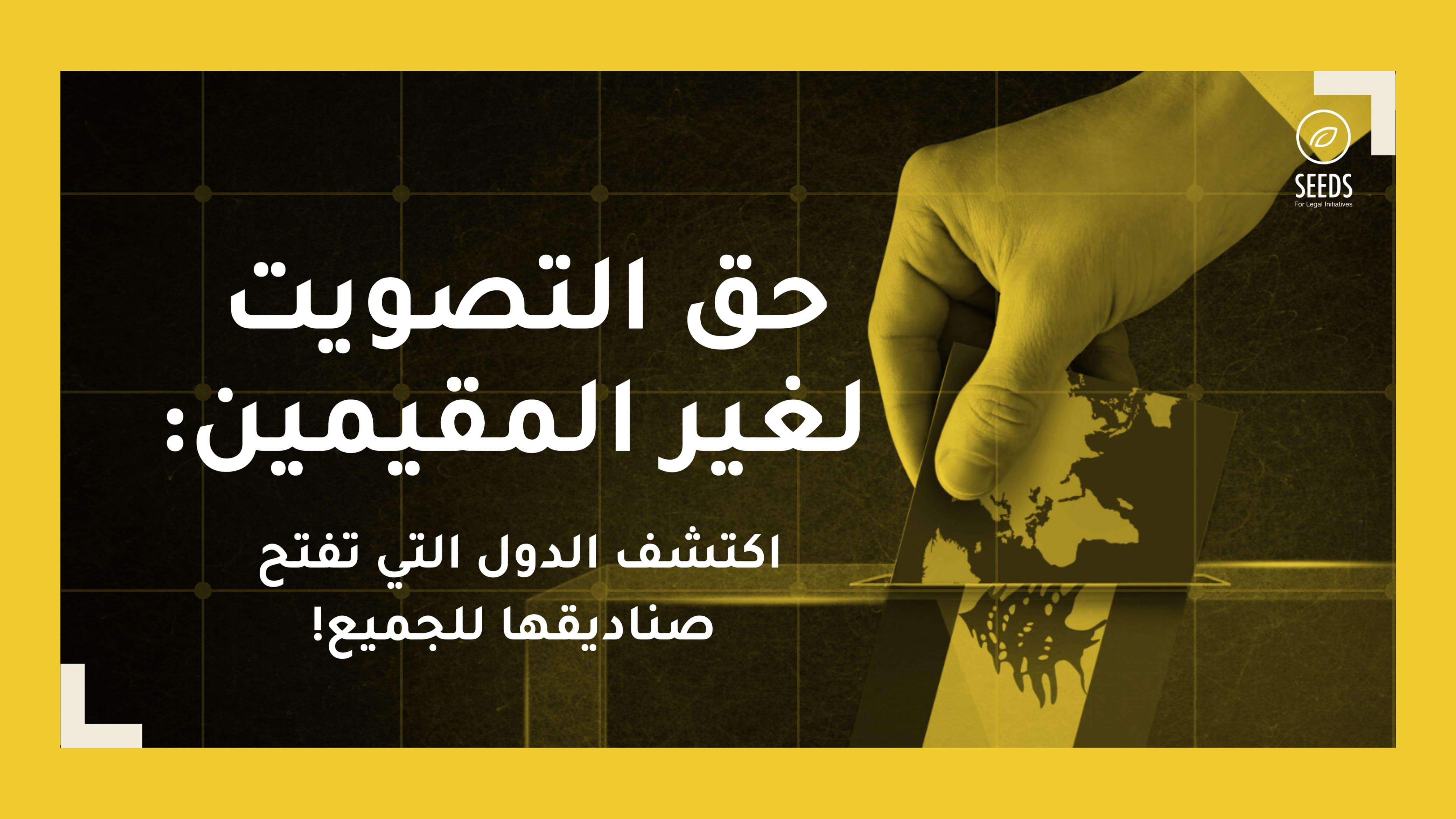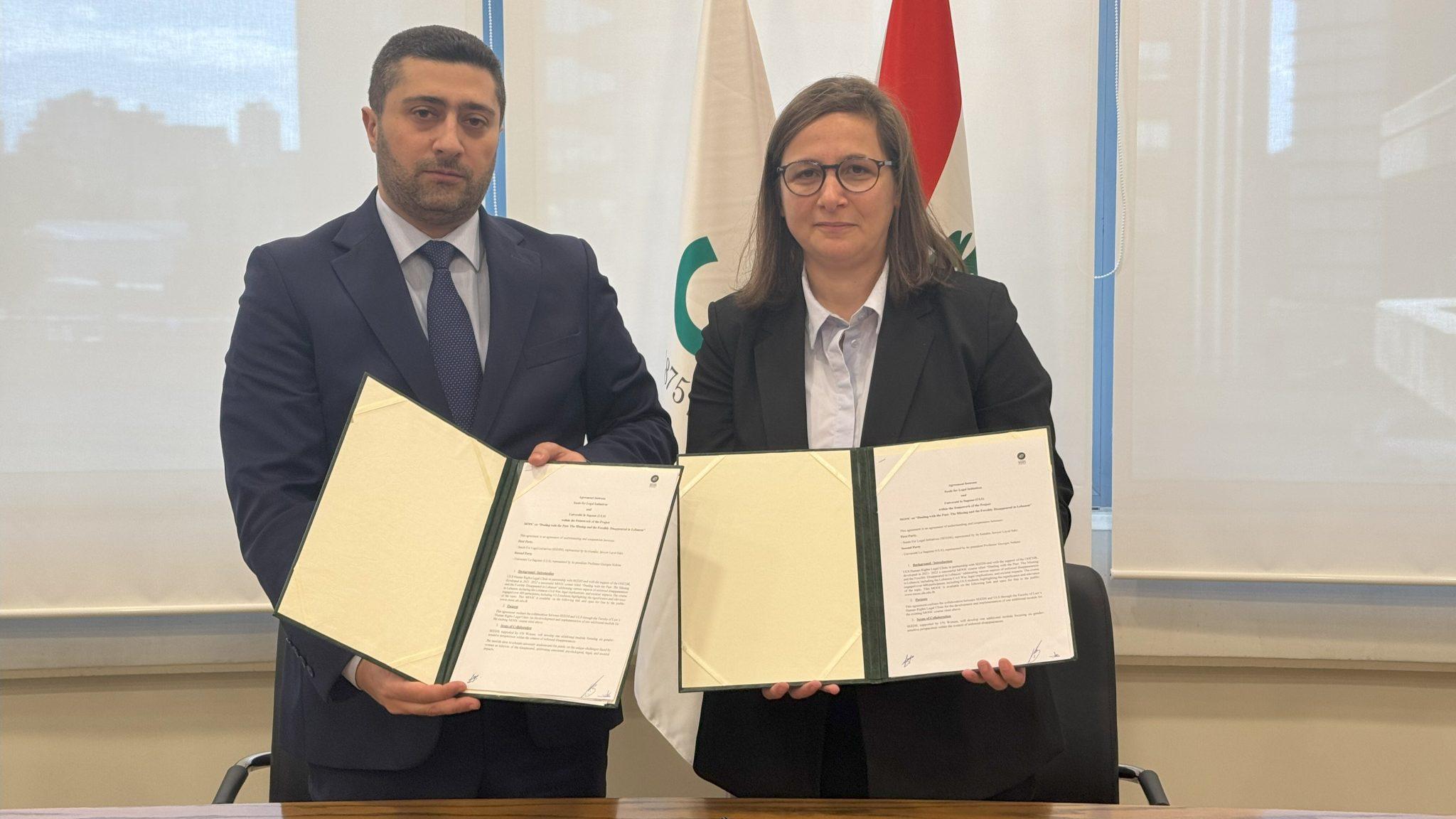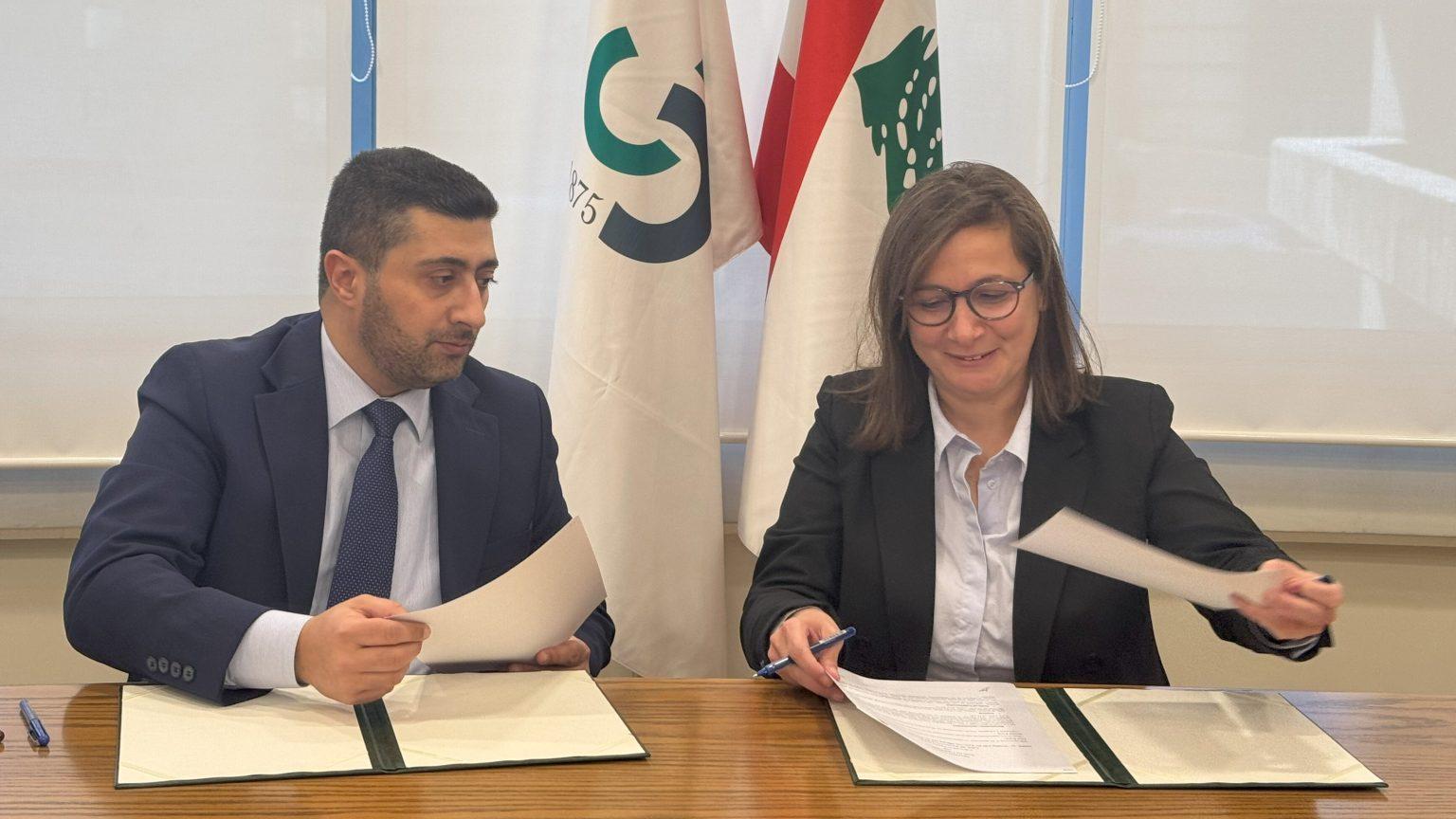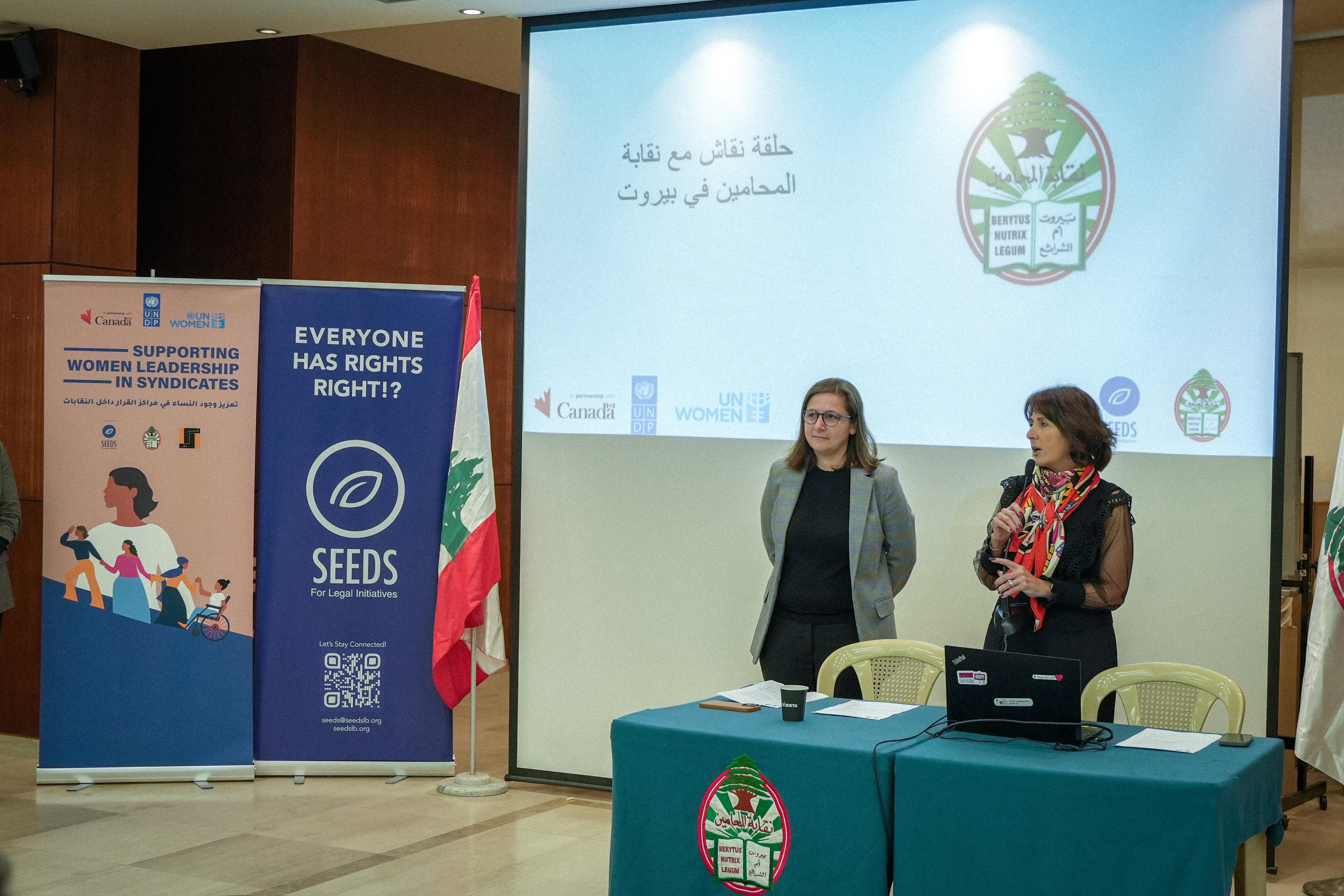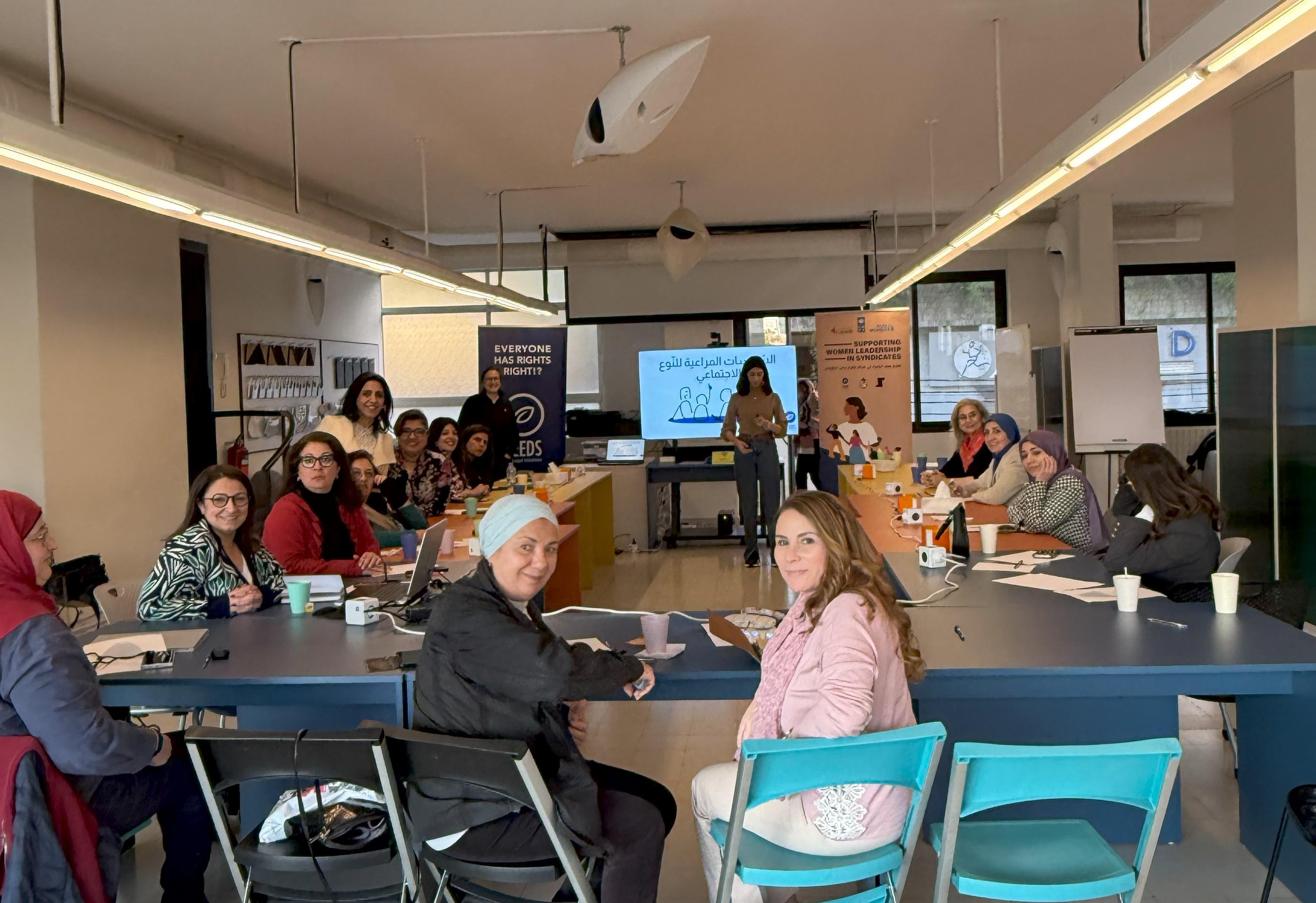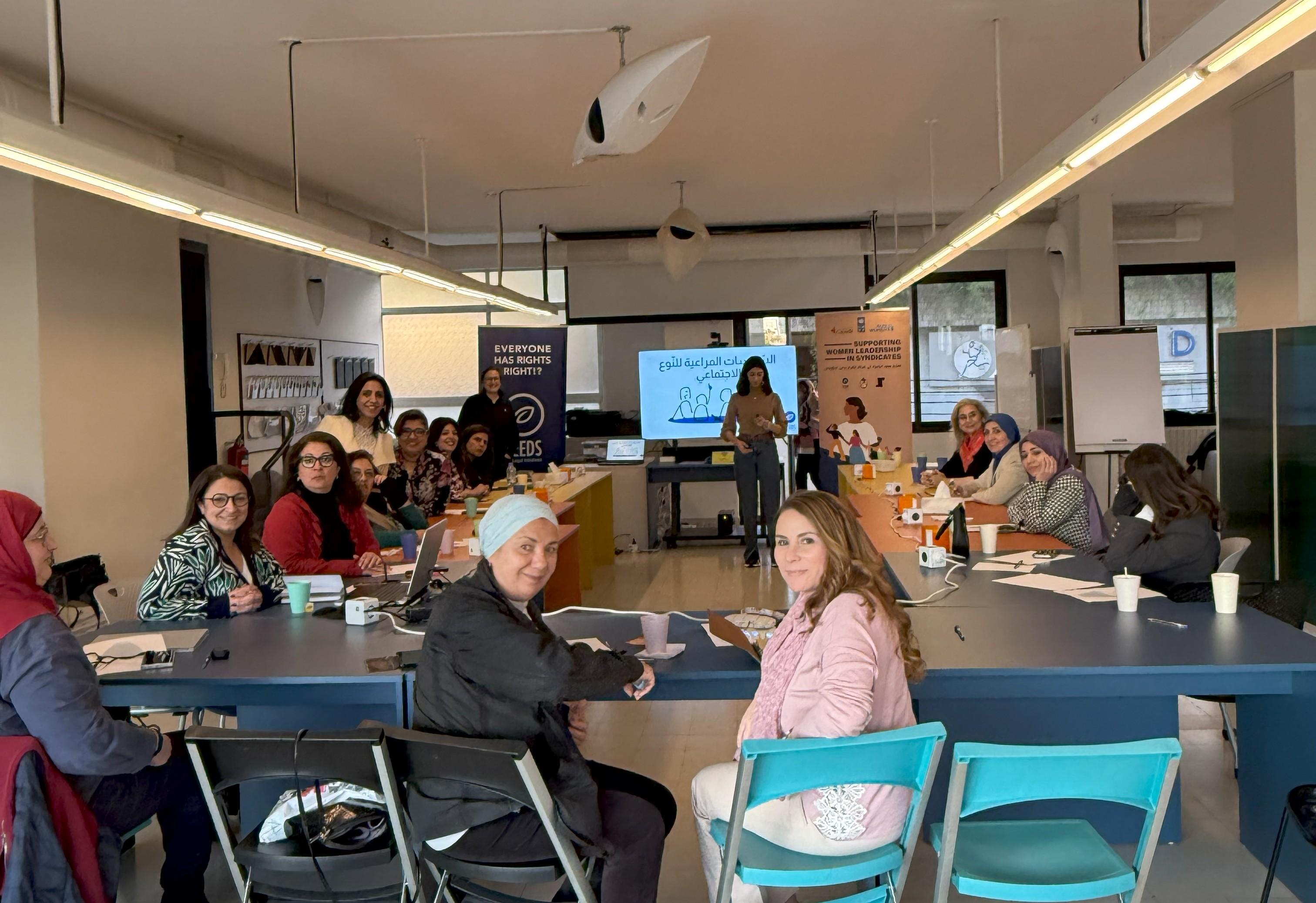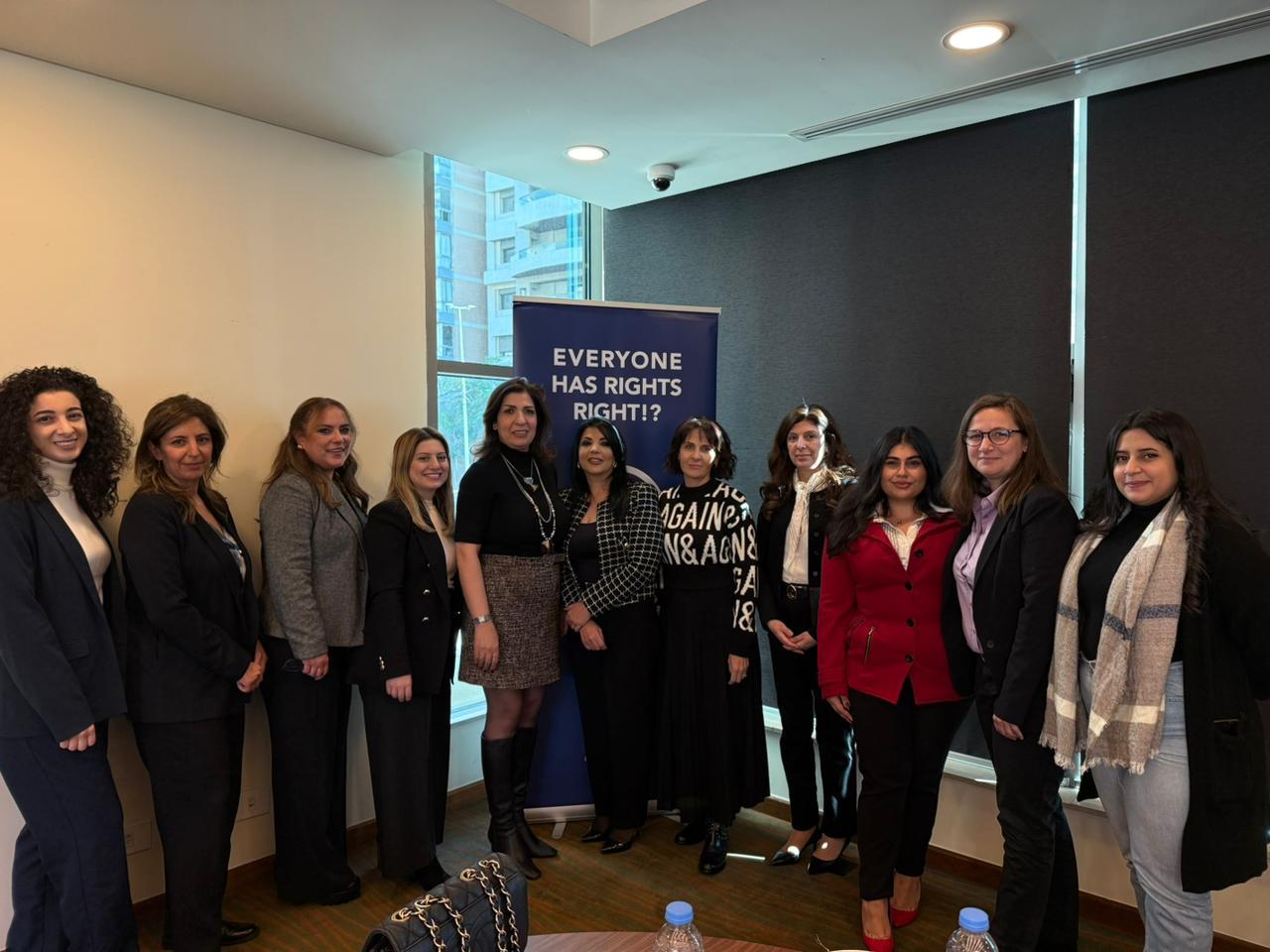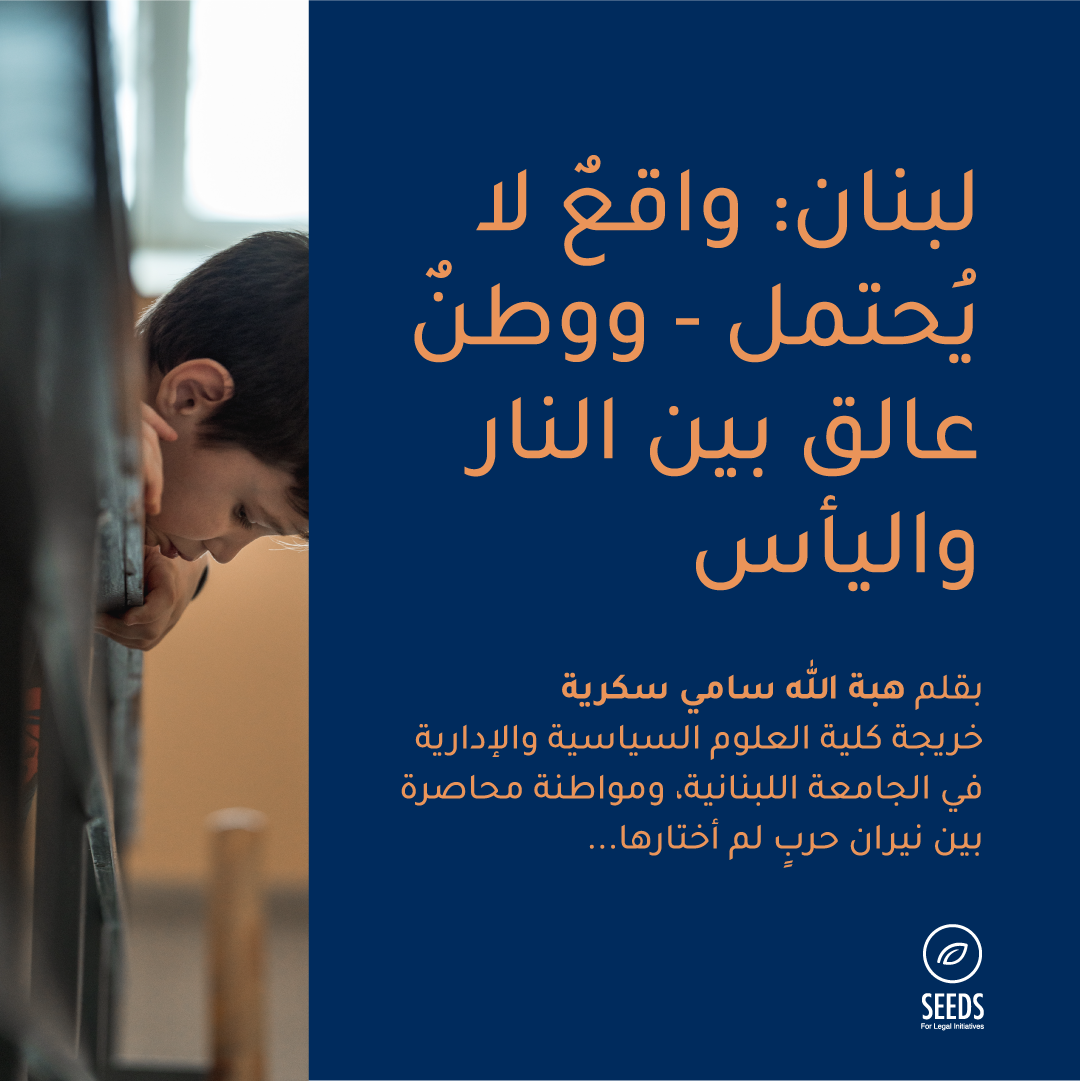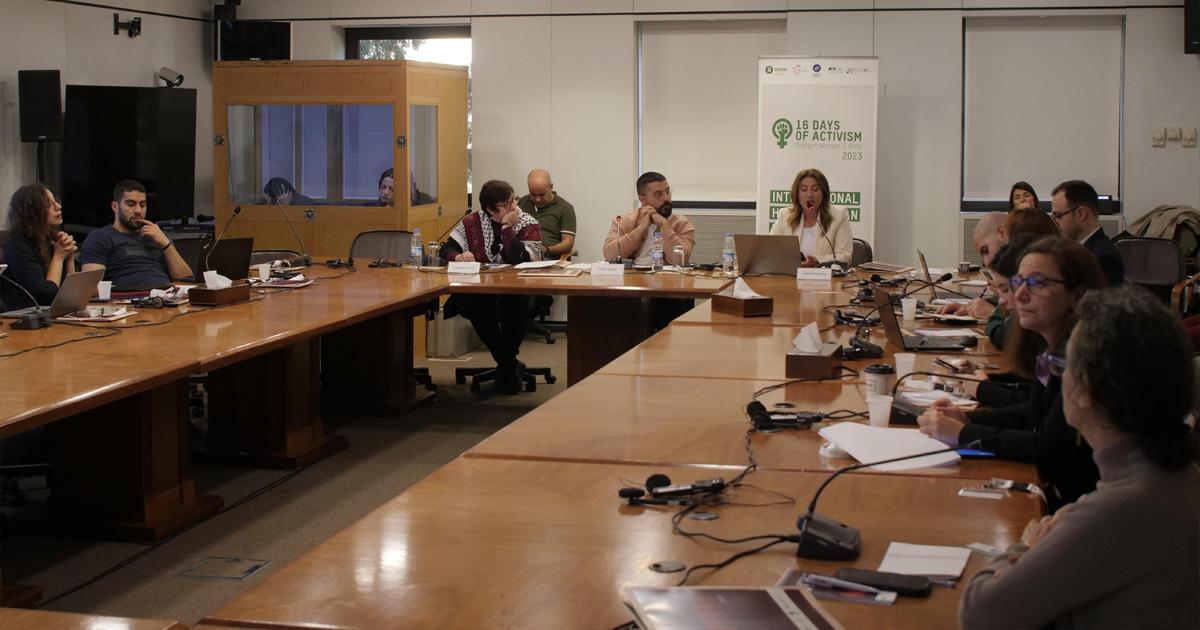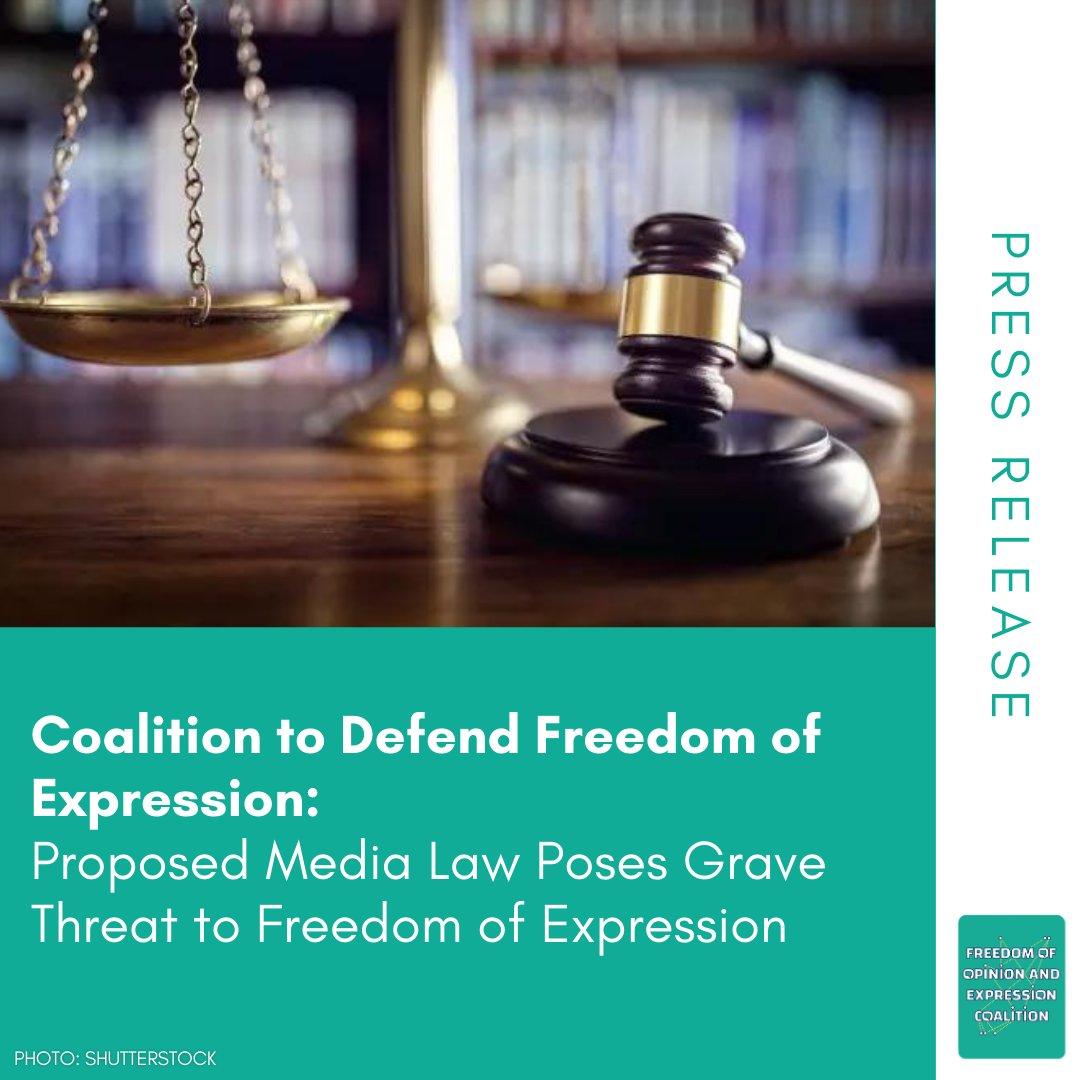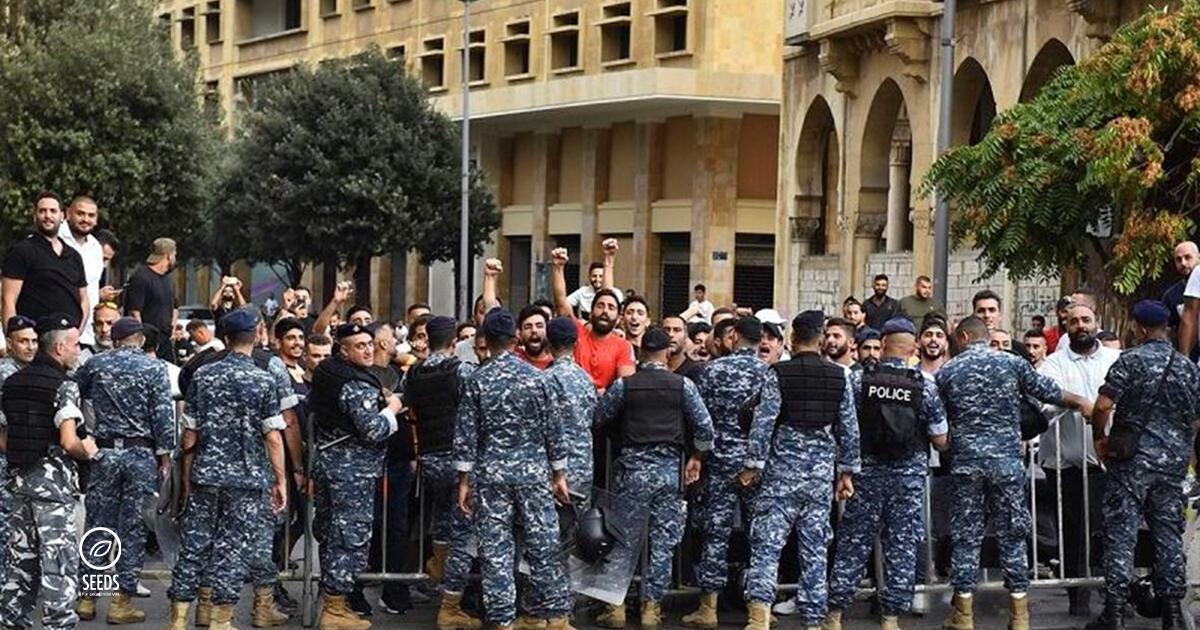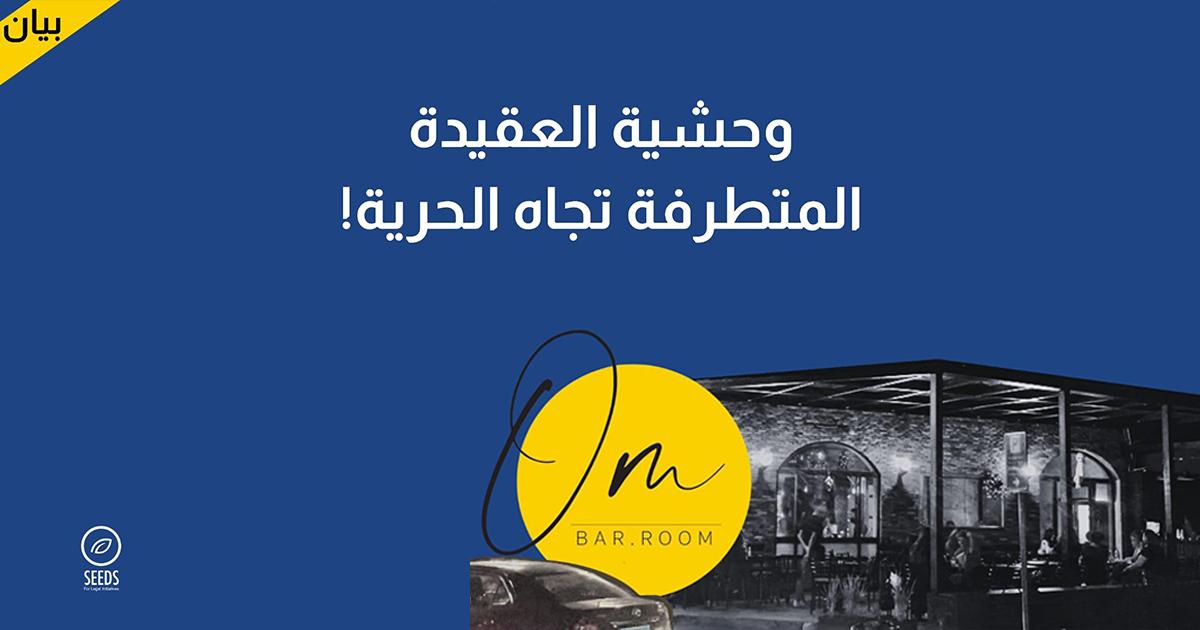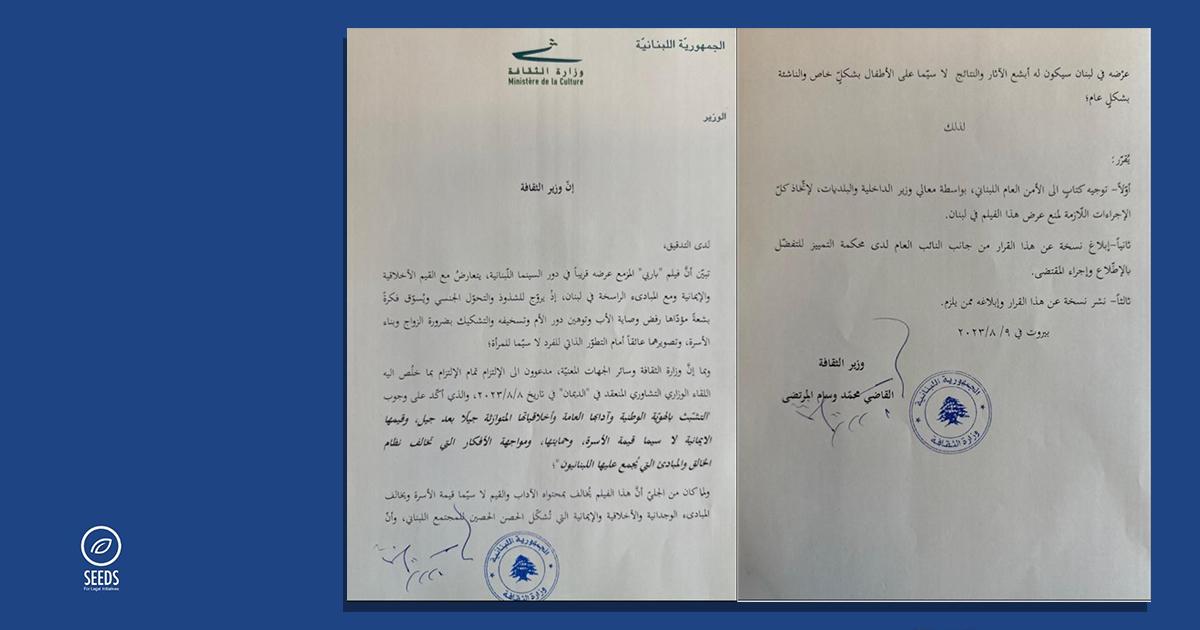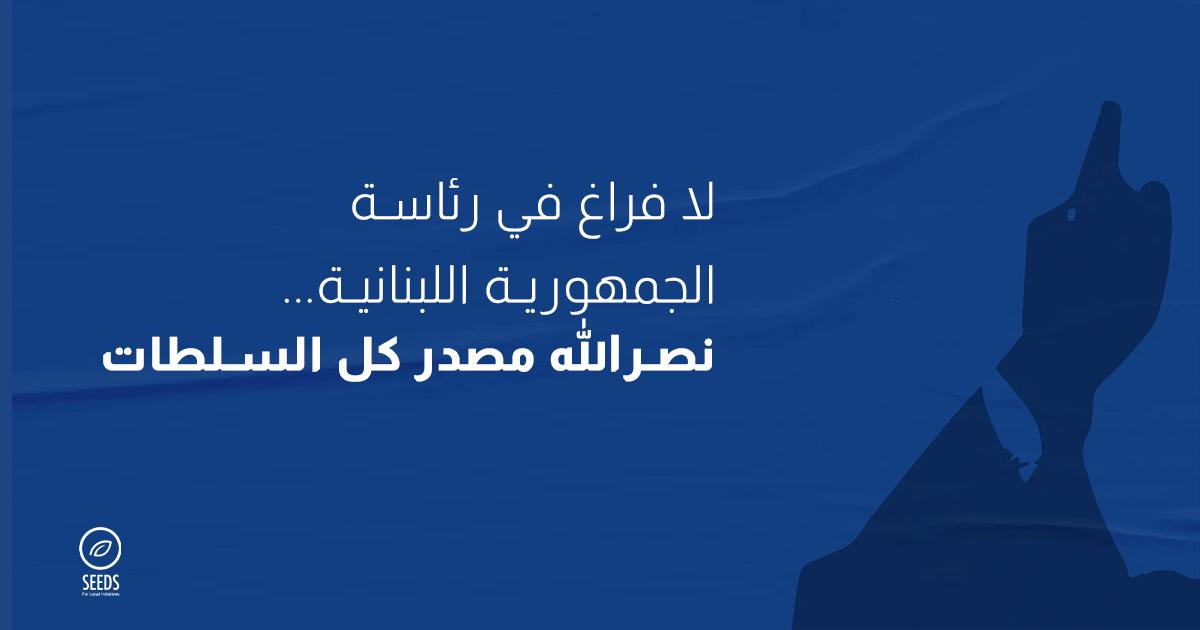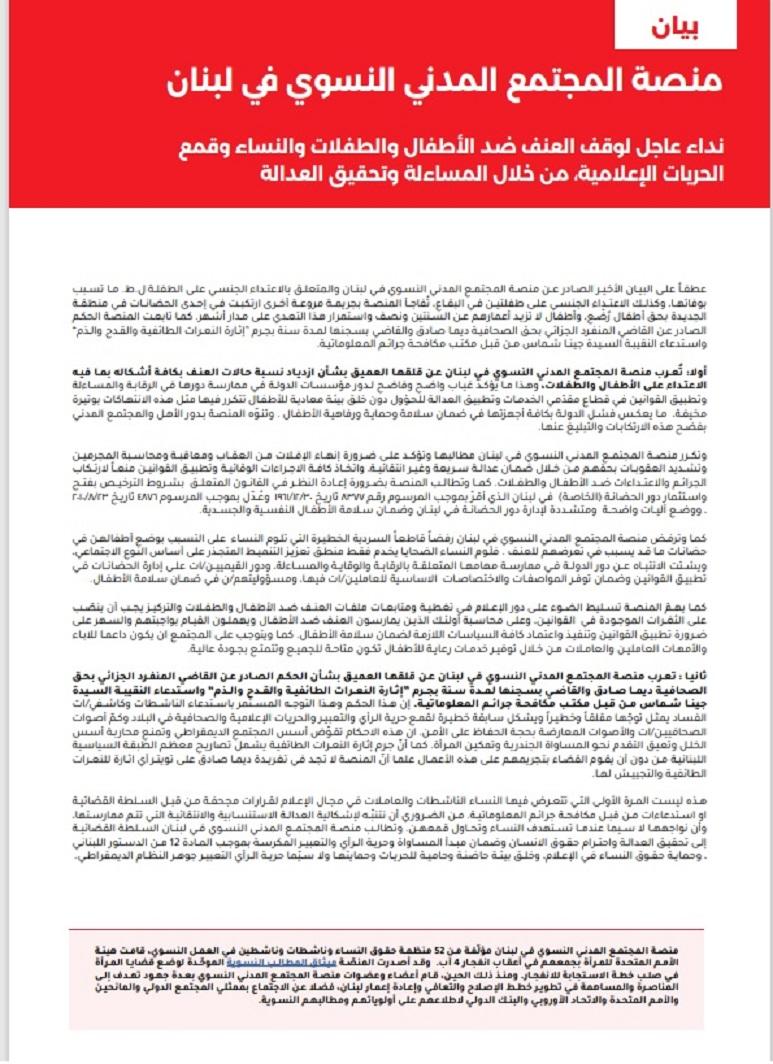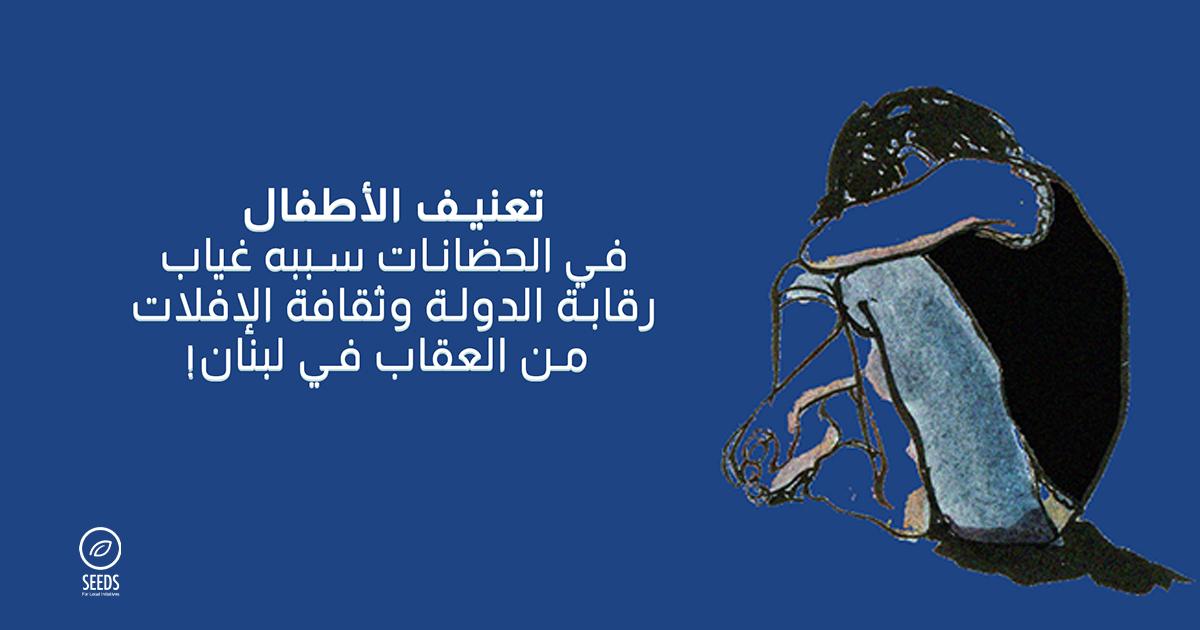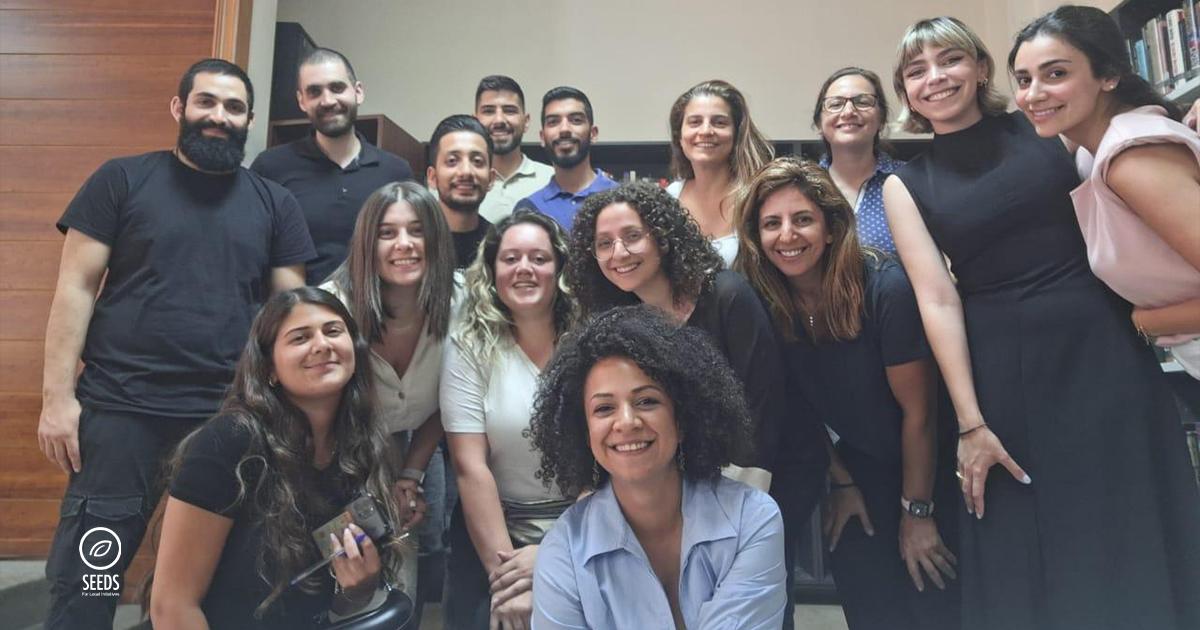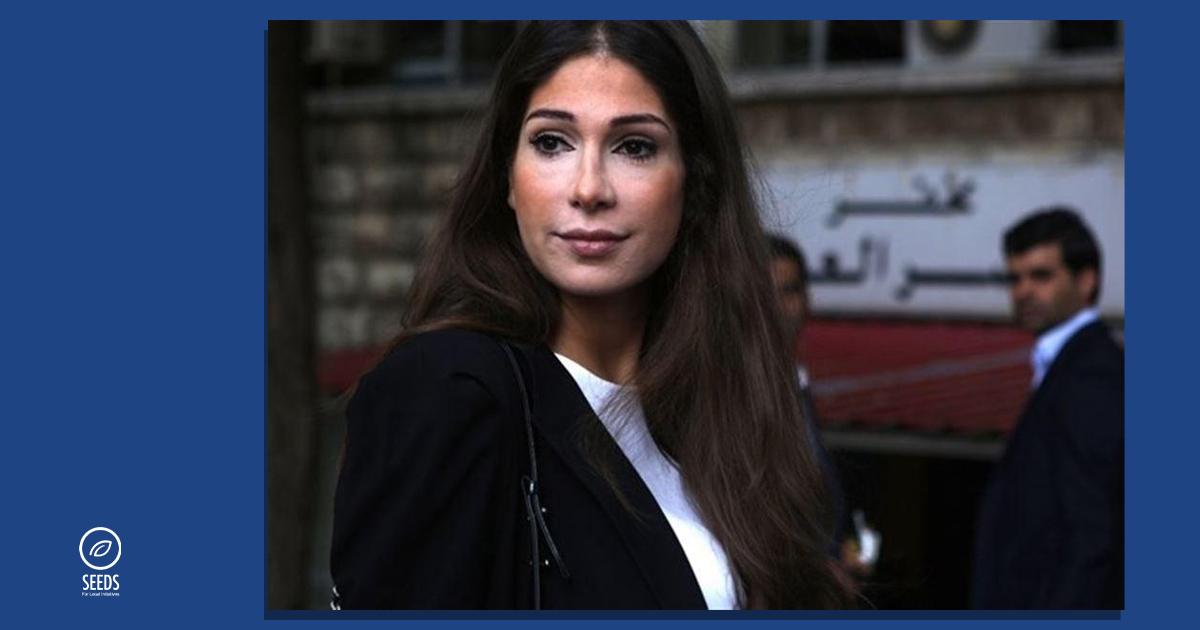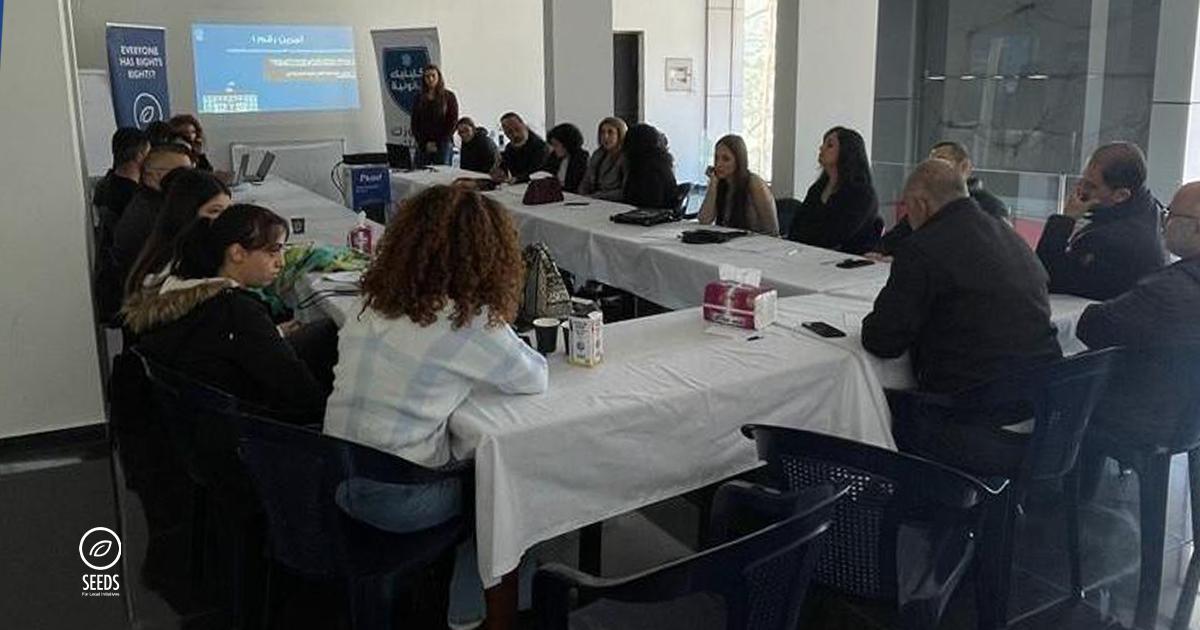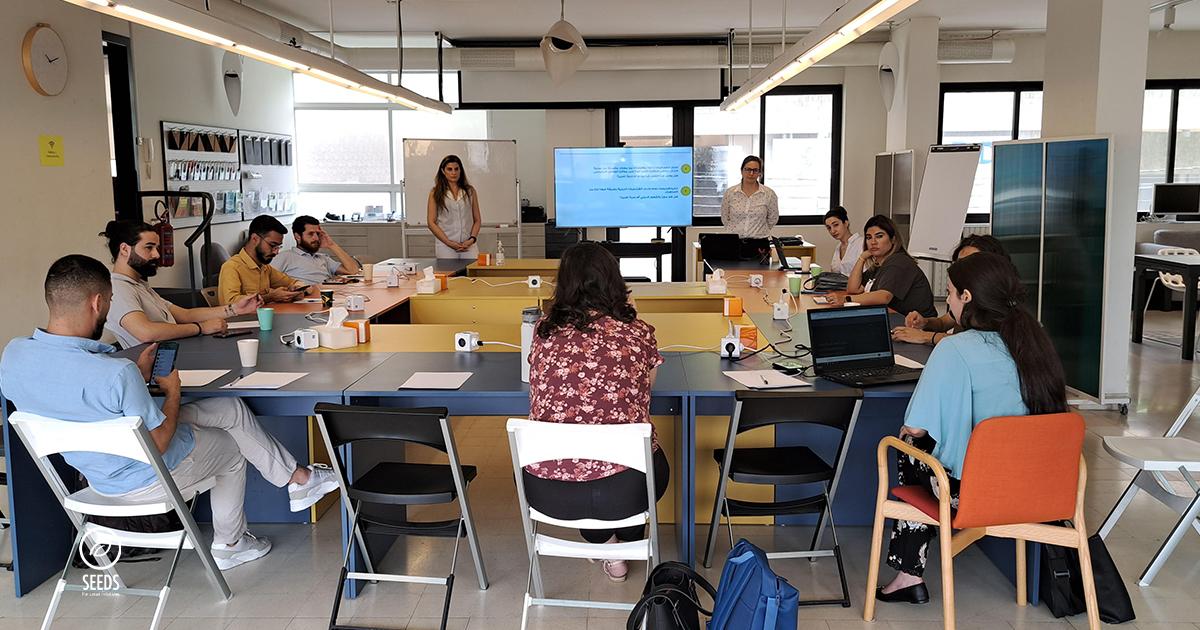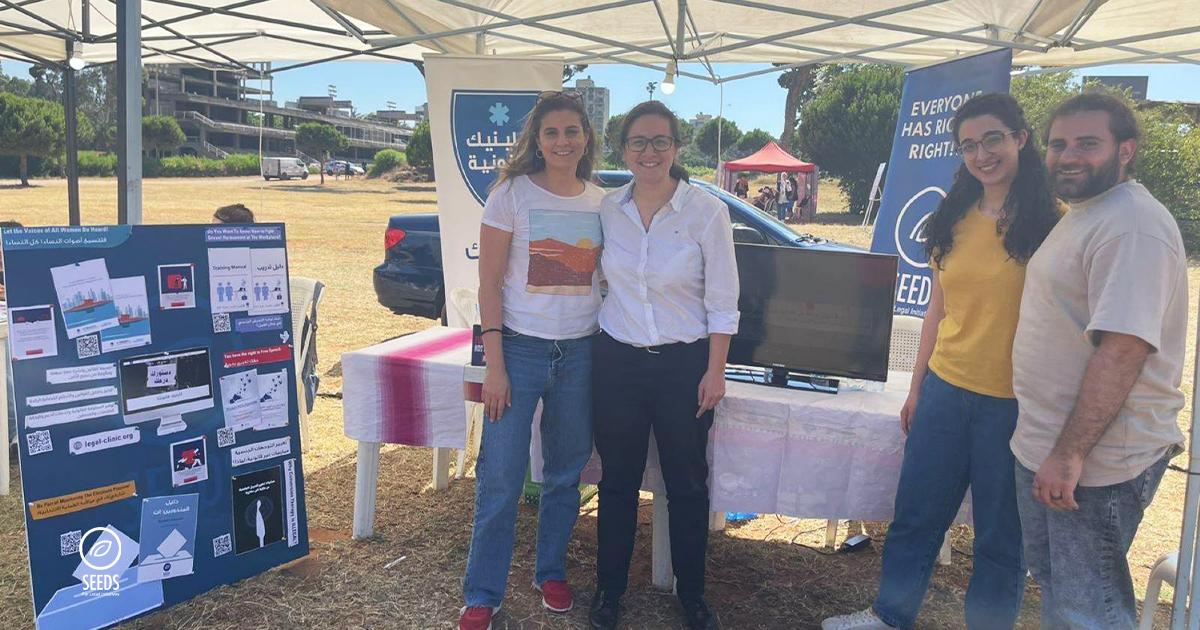Lebanon: An Unbearable Reality – A Nation Stuck Between Fire and Despair
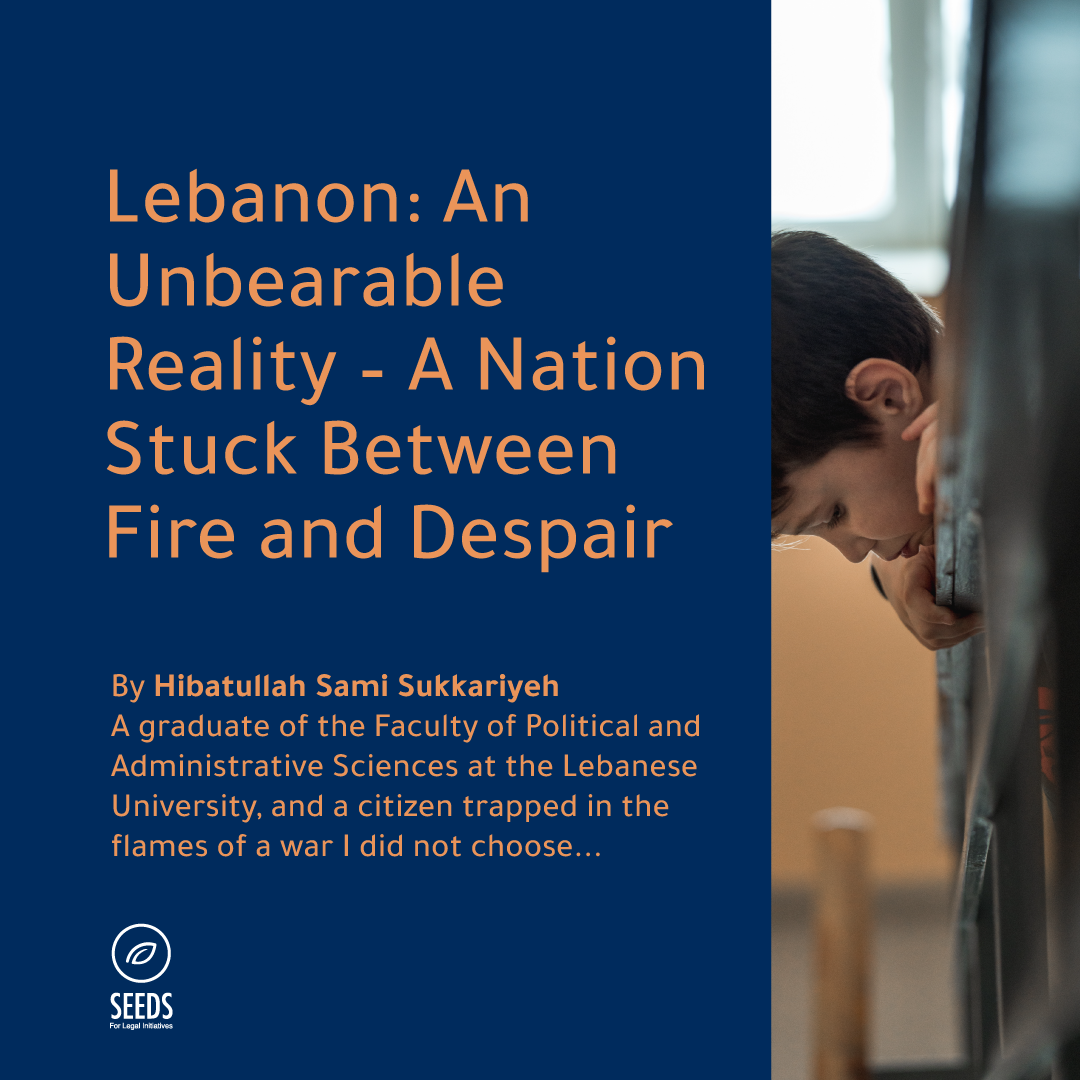
Article translated from Arabic
Al-Fakeha - Northern Bekaa
I sit with my mother, father, and my aunt, who fled her home to escape the bombing and destruction. Surrounded by the familiar echo of Israeli airstrikes and the deafening silence in the deserted streets, I find myself grappling with a reality no Lebanese citizen should ever have to face.
War...
Once again, Lebanon - my country, already burdened by decades of political instability, economic collapse, social fragmentation, shrinking civic spaces, and the dominance of militias - finds itself being drawn into a conflict it neither chose nor can control.
This is not just another headline to be written about in newspapers or a topic for lofty speeches; this is our lives, our homes, and our future. I write this as a woman and Lebanese citizen who can only reflect on the helplessness that fills our streets.
South Lebanon is in a state of utter desolation.
The Bekaa Valley is shaken by explosions.
Parts of Beirut bear the scars of this war imposed on Lebanese men and women.
The war has claimed more than 600 lives in just three days, including women forced into war yet excluded from negotiations to find a solution, and children whose futures are stolen before they could even begin their lives.
The devastation is staggering: over 70,000 displaced from southern Lebanon, and countless homes destroyed.
The essential institutions that keep our society together and give the state its form - schools, universities, official institutions, and workplaces - have all ceased to function.
We Lebanese men and women find ourselves living without truly living.
For those of us caught in the crossfire, we are not pawns in this political chess game. We did not ask for this war. We are not soldiers in this conflict. We are not human shields to be used in a twisted geopolitical struggle between foreign entities that have long disregarded our sovereignty and dignity.
We are not collateral damage in this ideological battle - we are suffering and witnessing a humanitarian catastrophe that the world cannot afford to ignore.
As citizens, we are used to crises, but this time it feels different. The weight of fear, tension, and isolation is unbearable. Our future, already hanging by a thread due to political paralysis and economic collapse, now seems entirely out of reach.
The sense of isolation, the feeling of being trapped in a nightmare with no way out is suffocating. It is not just the physical destruction that haunts us, but the deep sense of helplessness.
We, the people of Lebanon, are neither the instigators of this war nor the decision-makers in its resolution. Our voices have been silenced by the powers that claim to represent us. We are trapped in the midst of a brutal confrontation between Israel and Hezbollah, fueled by a broader regional power struggle between Iran and Israel.
At the heart of this crisis lies the undeniable influence of Iran, whose strategic ambitions in the Middle East have fueled numerous conflicts across the region. Tehran has enabled Hezbollah to engage in this war with Israel, dragging the Lebanese people into a conflict they did not choose. This is part of a broader Iranian effort to assert dominance over regional geopolitics, using proxy forces in Lebanon, Syria, Iraq, and Yemen to advance its own goals.
Ironically, while Lebanon burns, hundreds die every day, and thousands are displaced, Iran has resumed nuclear negotiations with the United States, portraying itself as a rational actor on the global stage. In statements by the Iranian president, Iran distanced itself from the conflict, claiming that the situation in Lebanon is a domestic affair and asserting that Iran has no intention of engaging directly with Israel.
This ambivalence reveals a calculated pragmatism: Iran is content to make Lebanon its battlefield, using Hezbollah as its proxy, while protecting its own interests at the international negotiating table. Meanwhile, the Lebanese people are left to bear the brunt of this insidious manipulation.
On the other hand, Israel's actions raise critical questions about the limits of international law and ethics in war. The sheer scale of the destruction in Lebanon and Gaza, where hundreds of civilians are killed daily, challenges any reasonable interpretation of international humanitarian law. The principle of distinction, which mandates the differentiation between combatants and civilians, has been repeatedly violated. As Israeli airstrikes target densely populated areas, ambulances, and inhabited homes, the civilian death toll continues to rise, underscoring the brutality of a conflict where innocent lives are expendable.
The Lebanese people have become collateral damage, reduced to mere pawns in a deadly game that serves no one's interests but those who are beholden to non-Lebanese decisions, agendas, and ideologies.
But no.
This time we will not accept being collateral damage either. We are not numbers in the death toll, nor are we nameless victims of a conflict we did not choose. We are mothers, fathers, daughters, and sons - each with dreams, hopes, and ambitions now buried beneath the rubble.
The world must understand that Lebanon cannot bear this burden alone. We cannot allow ourselves to be consumed by the narratives of foreign powers that see us only as statistics and Lebanon as a battlefield. The international community has a responsibility not only to respond to the immediate humanitarian crisis but also to acknowledge the root causes of this conflict and hold accountable those who continue to exploit Lebanon for their own political gain.
The Lebanese people deserve to live in peace, to thrive, and to rebuild their country on their own terms. We are not voiceless, nor are we powerless… For with every bomb that falls, and every life lost, there is a cry for justice, for humanity, for an end to the cycle of violence, criminality, power games, and the narratives that justify, accuse, and incite violence, murder, and destruction—all while glorifying a culture of death that has shaped our history for far too long.
It is time for the world to listen. To understand that we are not just a battlefield, but a people deserving of a chance to live free from the chains of war and foreign influence.
Let this war be another chapter in Lebanon's long history of suffering. Let it be the moment when the world finally says: enough.
The Lebanese people are not hostages.
Yes, we are not hostages.
We are not human shields.
We are not collateral damage.
We are human beings - deserving of peace, security, and dignity.
And it is time for the world to recognize this.
